Uber says Chinese EVs will help achieve net zero emissions
The ride-sharing giant is partnering with Chinese electric vehicle maker BYD to make EVs more affordable and says high tariffs and US-style bans are not helpful in combating climate change.
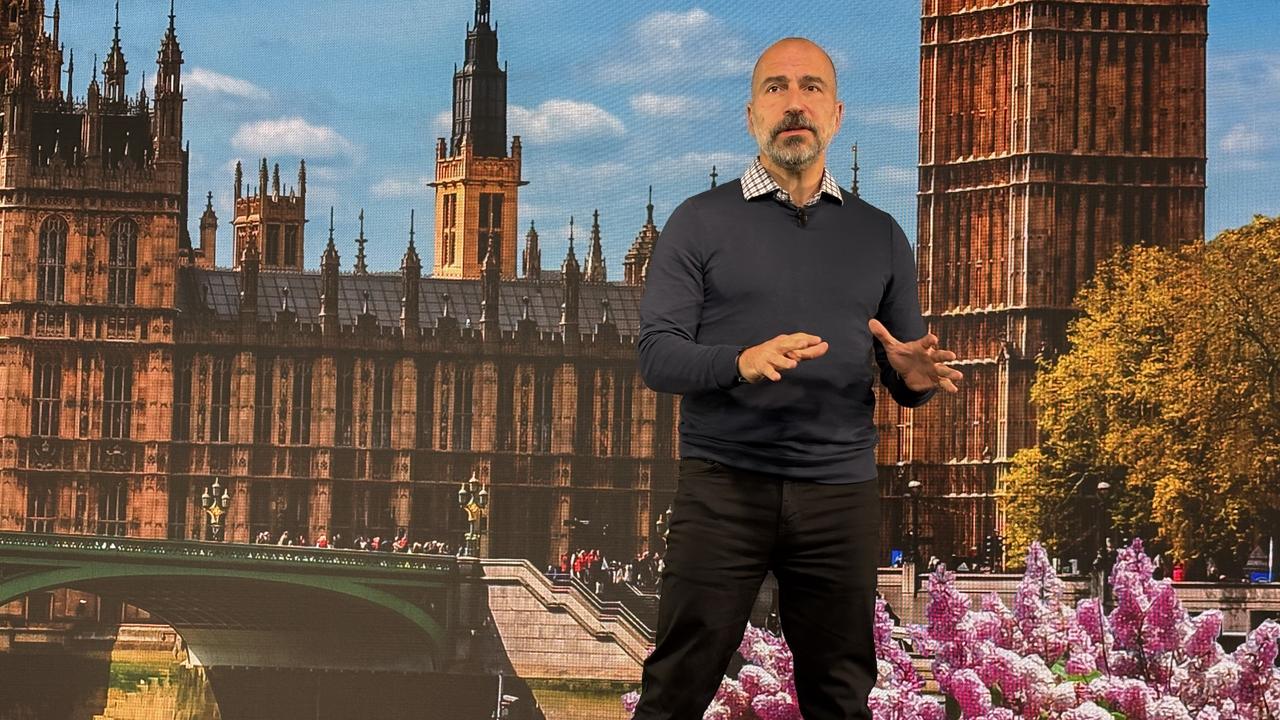
Chinese electric vehicles are needed to slash carbon emissions across passenger cars, with US-style bans and high tariffs “not helpful” in combating climate change, ride sharing giant Uber says.
Chief executive Dara Khosrowshahi said EVs have become a “politically charged issue” ahead of the US election and other polls in key democracies.
But he said Uber had partnered with a range of EV makers, including China’s BYD, to offer discounts of 15-20 per cent for its drivers and accelerate electric vehicle ownership.
“How you vote often determines how you feel about EVs,” Mr Khosrowshahi said at Uber’s Go-Get Zero event in London on Tuesday.
“But here at Uber we’re seeing people from across the political spectrum, everywhere we operate, using EVs because they’re just plain better. And no matter what your political beliefs, better is better.
“So at a time when people are backing away from an all-electric future, Uber is charging ahead.”
The US has announced it would prohibit the use of internet-connected cars containing Chinese software and hardware on US roads, amid fears they could be used to cause accidents or allow hackers to infiltrate critical infrastructure.
Climate Change Minister Chris Bowen has said the Albanese government will not follow suit, creating a split on national security concerns with one of Australia’s closest allies.
Mr Bowen said he wants Australians to access as many clean vehicles as possible.
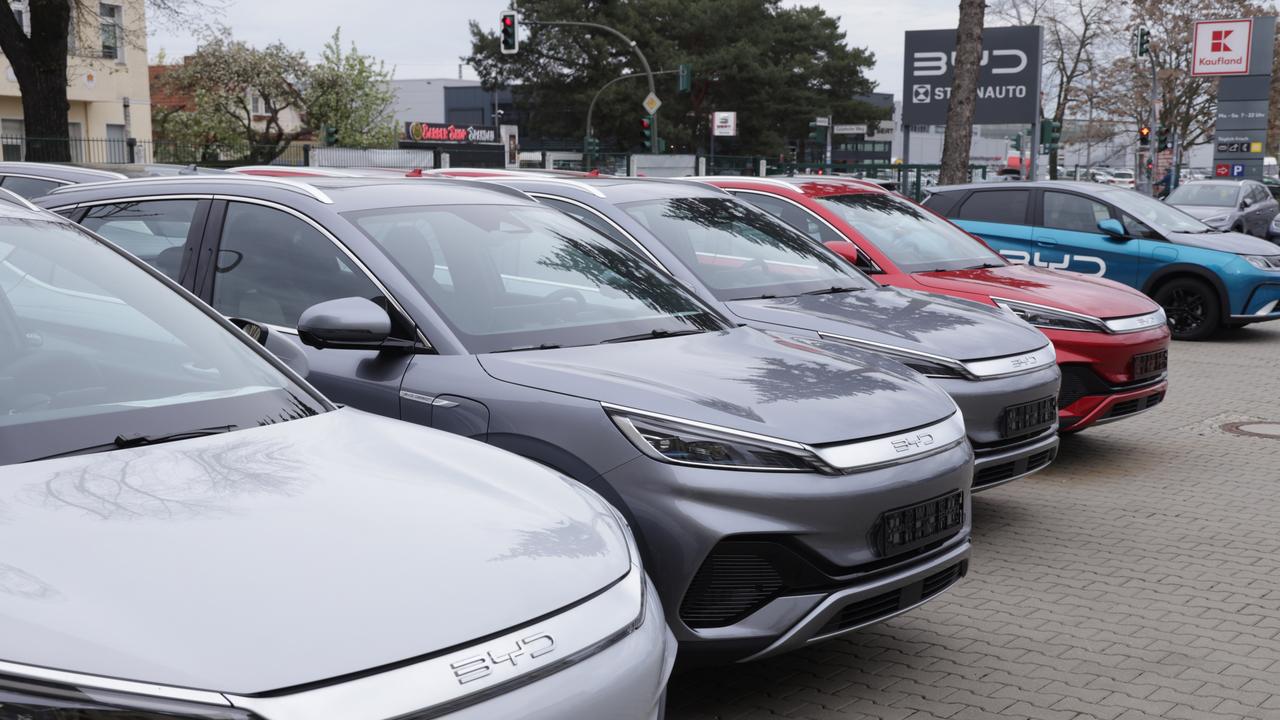
Phasing out hybrid cars from Uber Green
Uber – which has an ambitious goal to transition fully to net zero emission vehicles – announced in London it was also phasing out hybrid vehicles from its Green offering in Australia and other countries to make it fully electric by April next year.
This has put the company at odds with the world’s biggest carmaker Toyota, which says hybrid petrol-electric cars are key to slashing emissions.
But one Uber executive said the problem with hybrid vehicles was “they don’t produce zero emissions” and they are not the “long-term future”.
Uber will entice more people to choose its fully-electric Green offering by pricing about the same as it standard UberX rides.
Mr Khosrowshahi called for more government support, to make EVs more affordable and accelerate uptake.
Australia’s Federal Chamber of Automotive Industries chief executive Tony Weber described sales of battery electric vehicles as “disappointing”.
China-owned Volvo, has dumped its pledge to build only EVs by the end of the decade.
“The fact is we can’t do this alone,” Mr Khosrowshahi said.
“The reality is that we will only reach our zero emission goals if policymakers and other businesses do their part as well. We need stronger EV mandates. We need incentives for people who are driving the most.”
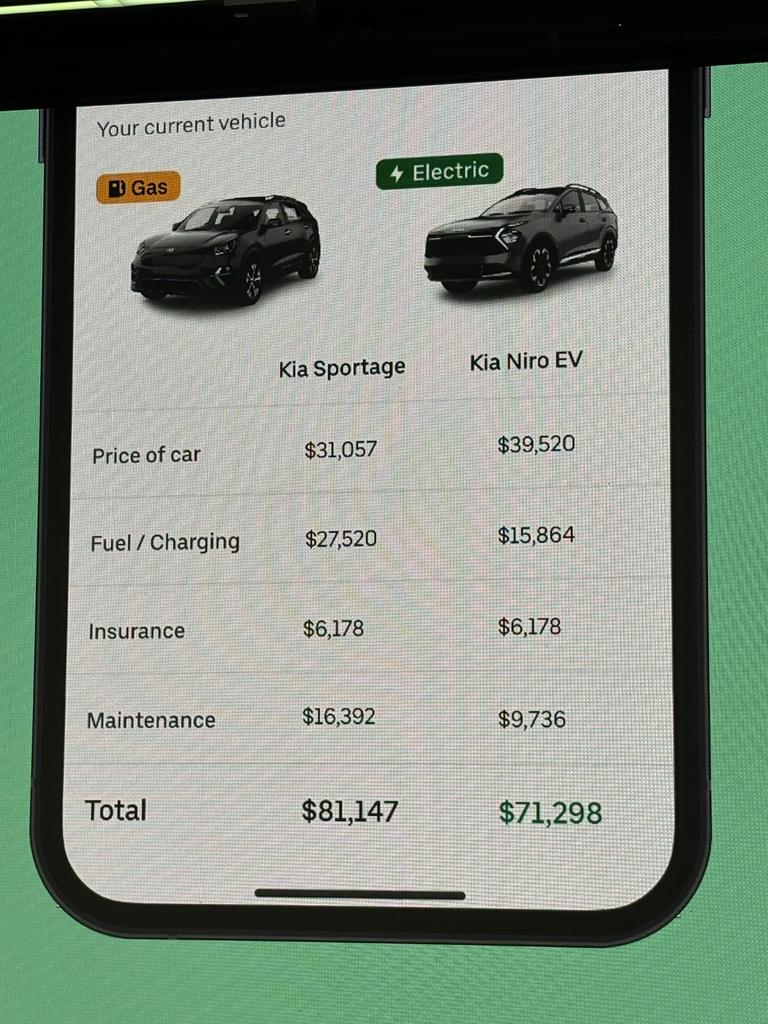
UK leading the way
Mr Khosrowshahi said London was leading the way in the push to accelerate EV ownership, with almost one-third of Uber drivers in the city investing in EVs, saying electric cars saves drivers about $10,000 compared with a petrol engines over a four-year period.
The UK has not imposed tariffs on Chinese-made EVs – unlike the European Union and the US, which have argued that Beijing is unfairly subsidising its auto industry.
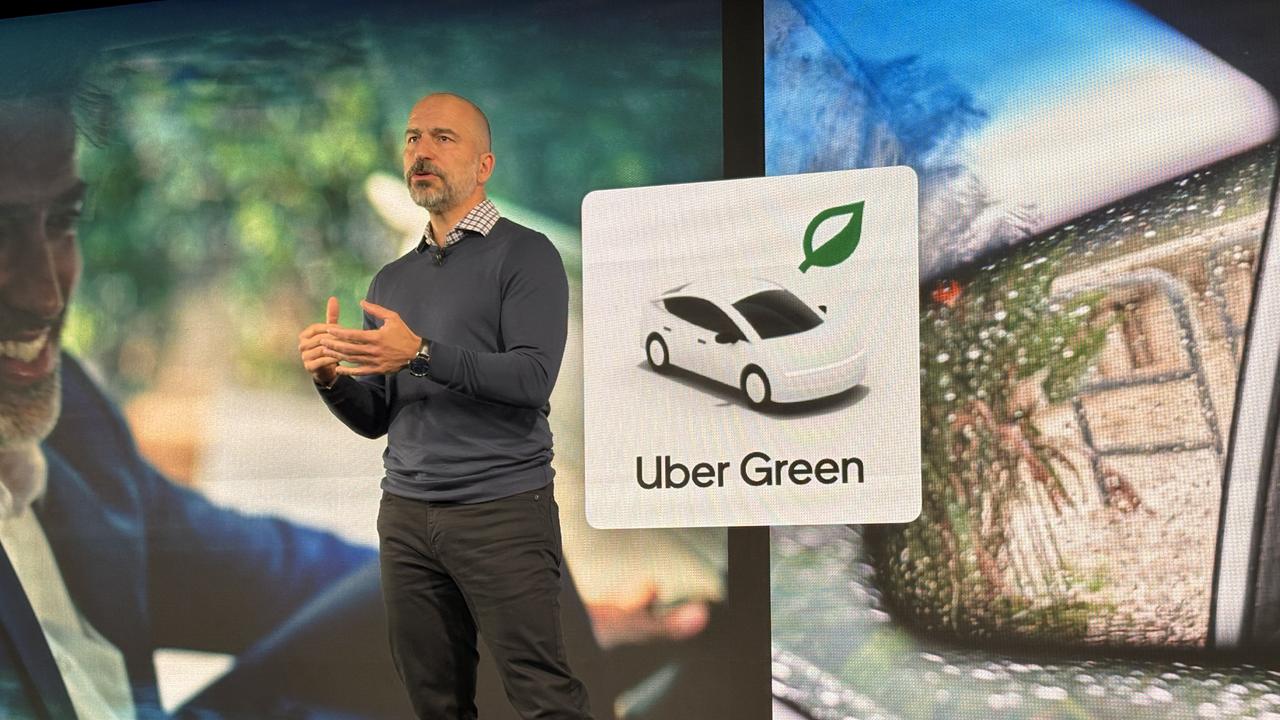
Bans ‘not helpful’
Uber’s global head of sustainability strategy Christopher Hook said bans “aren’t going to help” accelerate the uptake of electric vehicles and achieve net zero emissions.
“We’re pretty consistently of the view that we need to get the most affordable EVs in the hands of as many drivers as possible,” Mr Hook said.
“We’ve got some interim targets. So instead, we’ll aim to be 100 per cent (net zero) in US, Canada and Europe by 2030. That’s quite a steep curve from where we are today. We set those targets back in 2020 – it’s pretty tough to get to fully electric vehicles.”
EVs comprise about 10 per cent of Uber’s fleet in Europe, with Mr Hook saying the US is “slightly behind”. And in Australia about 5 per cent of Uber rides are in an EV.
Uber has launched a suite of initiatives aimed at increasing EV ownership among its drivers – including negotiating discounts of around 15-20 per cent with car makers, including China’s BYD.

“We’re not pretending that we’re going to be able to ship loads of these to the US. We’re just not,” Mr Hook said.
“We’re going to have partnerships across the world with different players. We’re tried very hard to build the largest possible network of partnerships and with people who are investing the most. There’s going to need to be some geographical nuance.
“It’s obviously not in our drivers’ best interests if suddenly those cars get really expensive because there are big tariffs on them. So we go into these deals with full knowledge of that geopolitical context. We’ve got that BYD deal. Australia was the first place we had that partnership with and now its global.”
Uber also has partnerships with Korean auto giant Kia and US marques Tesla and General Motors.
“This transition won’t happen at the pace that we want – the planet needs it to happen – unless those cars are as affordable as they can possibly be and be available at the same price and cheaper than petrol and diesel cars – both new and increasingly used,” Mr Hook said.
Chinese ambassador Xiao Qian declared countries should not set “unnecessary limits” on Chinese vehicles.
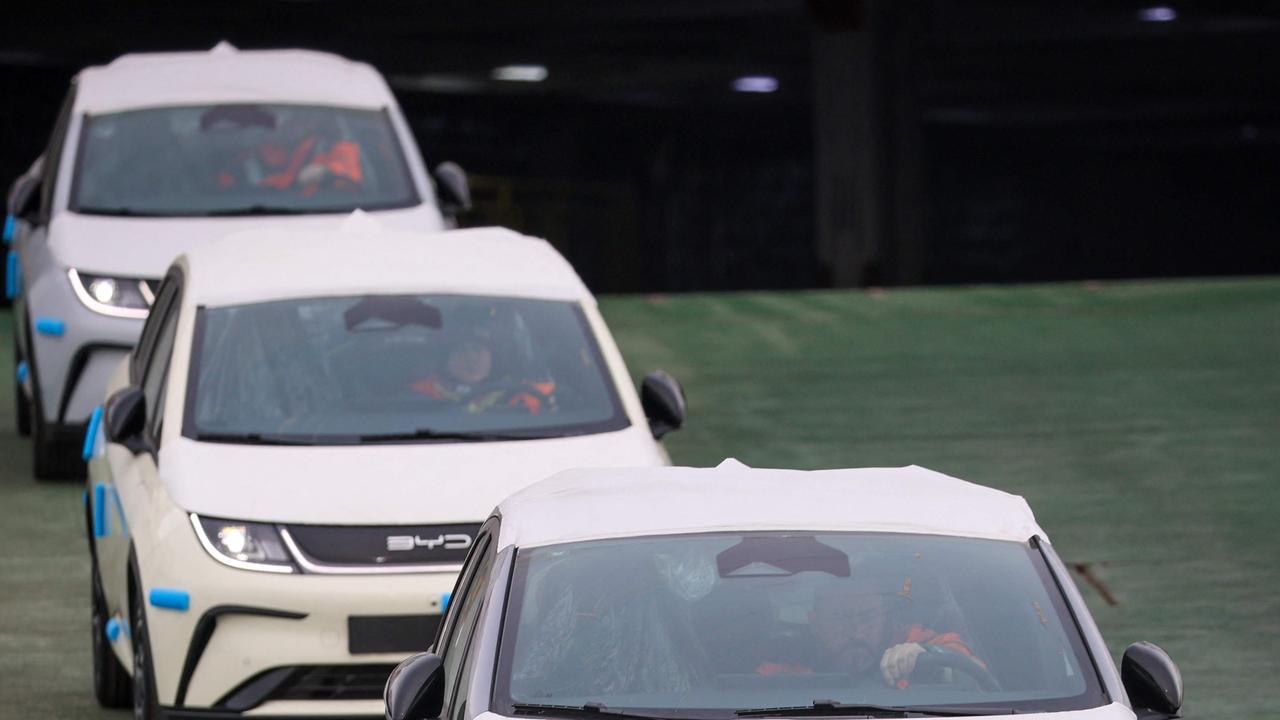
‘No security risk’
Mr Xiao said Chinese EVs posed no security risk, and would play an important role in tackling climate change.
“Let’s not over-interpret or exaggerate. Let’s do business following the economic rules,” he said.
“If China and Australia can co-operate to address climate change it will tremendously help both countries to succeed in their climate change goals.”
Despite saying that it would be “tough” to achieve Uber’s zero emissions targets, Mr Hook said the company would not alter its goals.
“Those goals are going to be really hard for us to hit those 100 per cent targets. I think it’s incredibly important that we keep running towards them as fast as we can because … that is the future of the business.
“We would like to be king of going ahead of the market rather than just keeping pace. There is no real work for us if we just sit here and let the car industry slowly turn over. We would much rather be a vanguard for change.”
The author travelled to London as a guest of Uber.
Originally published as Uber says Chinese EVs will help achieve net zero emissions



